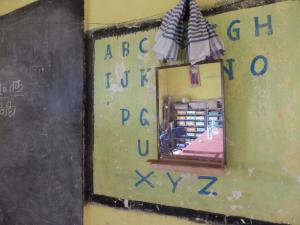You are here
- Home
- blog_categories
- Inclusive Innovation and Development
- English medium policy should not mean ‘English only’
English medium policy should not mean ‘English only’
8 January 2018

This is the fifth in a series of six blogs by the EMI research team. To read the rest of the series:
Great opportunities to support EMI with multilingual practices by Dr Elizabeth J. Erling, formerly Senior Lecturer in English Language Teaching and International Teacher Education at The Open University, is now Professor of ELT Research and Methodology at the University of Graz.
Ghana’s teachers need permission and support to incorporate local languages into EMI teaching by Kimberly Safford is a Senior Lecturer in Primary Education Studies and International Teacher Development at The Open University.
Studying teachers' use of language in Indian low-cost English medium schools by Dr Lina Adinolfi, Lecturer with expertise in language in education within the School of Languages and Applied Linguistics at The Open University.
Don't sacrifice good education for poor EMI by John Knagg OBE FAcSS, Global Head of English for Education Systems at the British Council
Photo by Dr Lina Adinolfi. Photo is not to be used without seeking permission from Dr Adinolfi.
Share this page:
Contact us
To find out more about our work, or to discuss a potential project, please contact:
International Development Research Office
Faculty of Arts and Social Sciences
The Open University
Walton Hall
Milton Keynes
MK7 6AA
United Kingdom
T: +44 (0)1908 858502
E: international-development-research@open.ac.uk
.jpg)